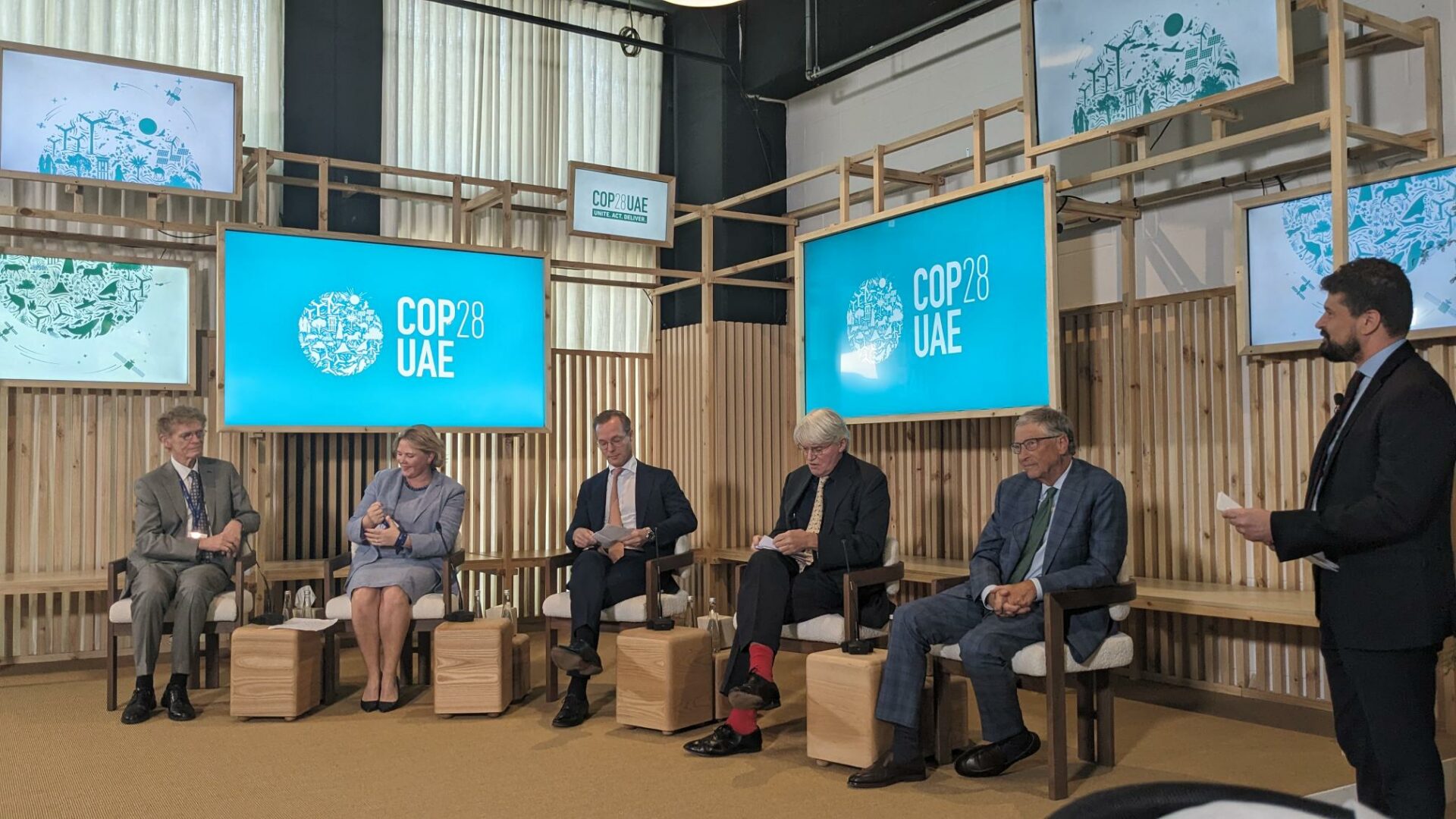
CGIAR, the world’s largest publicly-funded agricultural research network, has secured more than USD 890 million to accelerate progress against the ongoing global food and climate crises. With this funding, CGIAR will expand its work supporting smallholder farmers in low- and middle-income countries to shape more resilient, sustainable, and equitable food systems, reduce emissions from farming, and boost access to nutritious, healthy diets.
Investments in support of CGIAR’s new investment case were announced at COP28, which for the first time ever placed the future of agriculture at the heart of climate discussions. At a pledging event hosted by the United Arab Emirates, funders shared commitments including USD 136 million from the Netherlands, USD 132 million from the United Kingdom, USD 100 million from the United States, USD 100 million from the World Bank, and USD 51 million from Norway. These pledges followed yesterday’s announcement of a USD 200 million partnership to Accelerate Action on Climate and Strengthen Food Systems Through Investment in Agricultural Innovation by the UAE and the Bill & Melinda Gates Foundation.
“As the world faces interconnected food and climate crises, we need CGIAR research and innovation today more than ever,” said Dr. Ismahane Elouafi, CGIAR’s Executive Managing Director. “With growing investment and a strong focus on partnership, we can harness the power of science to solve the climate crisis for a food and nutrition secure future.”
CGIAR released a comprehensive new case for USD 4 billion in investments toward the organization’s 2025-2027 research portfolio, laying out the scope of the food and climate crises and the vital importance of increased investment in agricultural R&D. For every USD 1 invested in agricultural research and development, investors see up to USD 10 worth of benefits to smallholder farmers, vulnerable communities, and ecosystems.
“At COP28, we made an impressive breakthrough, placing food systems and agriculture at the heart of the agenda for the first time in the history of COP,” said HE Mariam bint Mohammed Almheiri, Minister of Climate Change and Environment of the UAE. “The endorsement secured by over 134 leaders to the ‘COP28 UAE Declaration on Sustainable Agriculture, Resilient Food Systems, and Climate Action’ highlights our collective resolve to galvanize action that will benefit millions of farmers. We are accelerating action, with the UAE joining CGIAR to further strengthen farmer-centered, climate-focused agricultural research and innovation. Through the UAE’s investment in CGIAR, we are underlining our commitment to promoting innovation in agriculture as a critical pathway to achieving our North Star – of keeping the spirit of the Paris Agreement alive.”
Climate change is fueling the largest food crisis in modern history. More than 780 million people are affected by hunger, a number that is expected to grow significantly with every degree the world warms. Agriculture is both a major contributor to climate change, producing almost a quarter of global greenhouse gas emissions, and deeply affected by it – global agricultural productivity growth has slowed by nearly 21 percent in the past 60 years due to climate change. But by focusing on science, food systems can transform from a source of emissions to a sink for carbon, from fueling environmental degradation to supporting regeneration, and from displacing biodiversity to protecting it.
For over 50 years, CGIAR has delivered the science, innovation, and partnerships to tackle humanity’s greatest challenges. Bringing together 13 research institutions across the globe, CGIAR’s decades of experience have already yielded critical progress toward food and nutrition security for all: almost half the world’s wheatland is sown with varieties that come from research by CGIAR scientists, and CGIAR’s work on modern crop varieties has reduced infant mortality by a third across the developing world – averting between 3 and 6 million infant deaths each year.
The UK’s International Development Minister, Andrew Mitchell, said, “Innovation for food and nutrition security already saves millions of lives around the world every year. With the climate crisis rapidly escalating, the global community needs to continue supporting this type of research to better meet the needs of people and planet.”
To meet the size and scale of the overlapping food and climate crises, CGIAR’s 2025-2027 research portfolio will support scientists, experts, and partners in hundreds of countries to expand and scale world-changing innovations – from new tools and technologies for food producers, such as AI-enabled apps to diagnose diseases in plants, to more nutritious and climate-resilient crops like bio-fortified sweet potatoes, next-generation cassava, and scuba rice.
“Investing in agriculture R&D now is one of our best bets to help the world adapt to climate change and prevent millions more from going hungry,” said Dina Esposito, USAID Assistant to the Administrator for the Bureau for Resilience, Environment, and Food Security. “We are proud that USAID has achieved – two years early – our USD 215 million Agriculture Innovation Mission for Climate commitment to the CGIAR. USAID will continue – through Feed the Future – to invest USD 100 million, working with Congress, to CGIAR over the next two years. We look forward to continuing our work together to deliver and scale solutions that enable millions of smallholder farmers to access climate-smart innovations and sustainably produce food in the face of climate change.”
Thanks to commitments from funders and partners, CGIAR will advance progress to achieve its vision of a food, nutrition, and climate-secure future for all.
***
About CGIAR
CGIAR, the world’s largest publicly-funded group of agrifood systems research centers, is a global research partnership for a food-secure future, dedicated to transforming food, land, and water systems in a climate crisis. It has more than 9,000 staff working in over 80 countries alongside more than 3,000 partners.
This post was first published on the CGIAR website: Countries Commit USD 890 Million to Accelerate Agricultural Innovation and Address Climate and Food Crises

